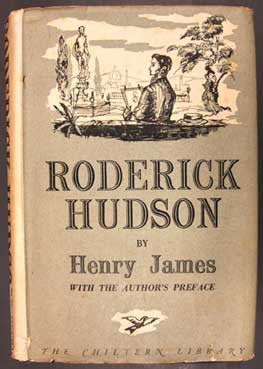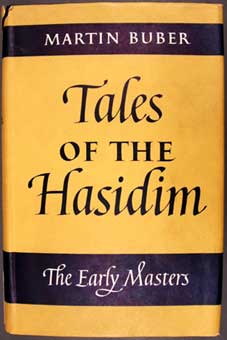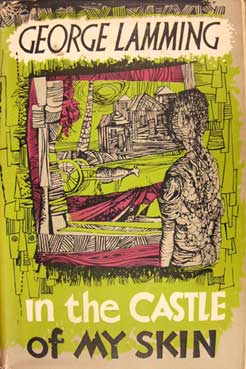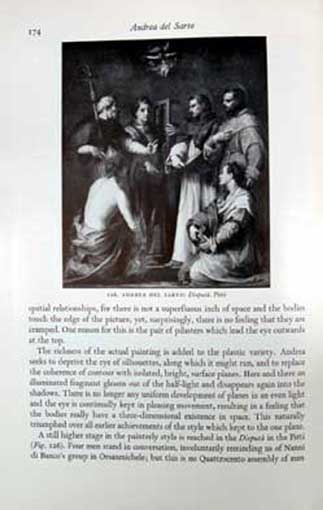James & Others
Brasch first read Henry James Roderick Hudson when he was about 16. Reflecting back, he asked himself: 'what can I have made of it then!' On re-reading it on 14 November 1954, he recorded his adult reaction: 'how I dislike this over-furnished style, so careful that it has no flow or impetus. The story too seems over-furnished, or over-manipulated; neither Rowland not Roderick is quite real, Christina Light alone escapes alive from the author's puppet-box.' Although he read James's preface on the novel's short-comings in the revised edition, he was still critical: 'It is so particular to state everything that it can suggest nothing.'
Henry James, Roderick Hudson. [London]: Lehmann, 1947. Brasch PS2116.R6 1947
On 5 February 1956, Brasch wrote: In the morning I woke early & sat up reading the Tales of the Hasidim. When I came to the brief story called Praying in the field, about the Hasid who fails to reach Mezbizh in time to spend the Day of onement near the Baal Shem & has to pray alone in the open field, a line of verse started in my mind, & in a few minutes I wrote down a poem about my father: & when I had written it, the title came - 'In the Field of Luz': the whole thing given to me, if anything ever was.' Here is the passage that sparked the poem in his copy of Martin Buber's Tales of the Hasidim.
Martin Buber, Tales of the Hasidim. New York: Schocken Books, [1947-1948]. Brasch BM532.BW78
In late June 1956, Brasch was in hospital again, sharing a room with a fellow patient who maddened him with his 'incessant juvenile hearty chatter' and constant playing of the radio. Brasch found it hard to read. On being discharged, he found solace in reading George Lamming's In the Castle of My Skin, which despite being uneven in parts, was 'remarkably rich, vivid & authentic & often most moving; an evocation of the life of an obscure village in remote tiny Barbados..'. This is the first edition.
George Lamming, In the Castle of My Skin. London: Joseph, 1953. Brasch PR9219.L3 I5
In mid-February 1957, Brasch left for England. While passing through Auckland, he saw Harry and Margaret Scott, Colin McCahon, Eric McCormick, but not John Caselberg, because Caselberg had the mumps. On board the boat, he continued to write his memoir:'I have to drive myself every day to sit down to 'A Window'. Books provided a break. Those he carried with him included Tolstoy's Childhood, Troilus & Criseyde, works by Burckhardt, Ungaretti's L'Allegria, and Wölfflin's Classic Art, which reminded him of W. H. Auden's line:'They were never wrong, the old masters.'
Heinrich Wölfflin, Classic Art. 2nd ed. London: Phaidon Press, 1953. Brasch N6915.W861 1953
Another book Brasch read on the boat was this Penguin edition of Angus Wilson's Hemlock and After. Initially disturbing, it seemingly proved useful:'The first effect of a book like this is to make me fear I am phoney; then to alarm me generally at a milieu I don't know – several milieux I don't know& but before long a sense of proportion reasserts itself. It may even, indirectly, help me with Finestra, help me to see what I am trying to see there with a clearer, more detached eye.'






